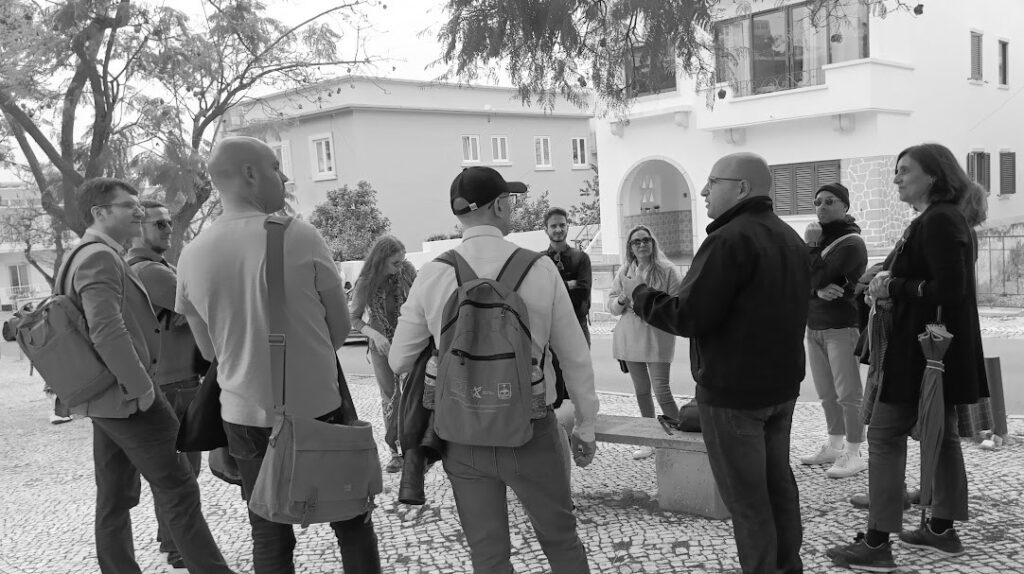The project is focused on engaging young people in rethinking the future and building sustainable and modern European cities using the popular game Minecraft.
The project aims to empower young people to take an active role in designing and creating the cities of the future by leveraging the creative and educational potential of Minecraft. It also raises awareness among young people about the importance of sustainability and modernity in urban planning and development.
The consortium gathers 8 partners from Belgium (P1), Portugal (P2), Latvia (P3), Bulgaria (P4), Germany (P5) Italy (P6 and P8) and Poland (P7). The partners represent sectors: Network Organisations (P1, P7), Municipalities (cities) (P2-4) youth stakeholder organisations (P5-6) and an SME (P8) expert in quality assurance.
Implementation: December 2023 – November 2025

Project objectives
- To raise awareness among young people about the importance of sustainable urban development. Over 400 young people will be included through face-to-face activities such as training, agoras, workshops, awards, policy consultations and conferences. Over 5000 young people will be reached online through seminars, educational toolkit, MC WEB and MC Metre.
- To support the development of digital skills among young people (especially females) and encourage the use of technology in policy processes on the local level.
- To encourage the involvement of a diverse group of young people with different backgrounds, promoting intercultural exchange and co-operation.
- To create and test an innovative policy mechanism for young people to collaborate and participate with policymakers in creating innovative responses to global challenges; MC Agoras will be implemented with 320 participants. Policy consultations/adjustments will be made with 44 participants, resulting in the policy toolkit, disseminated to 200 practitioners (educators, trainers) and 200 policymakers online. Sustainability conferences will be executed with 300 participants; resulting in wider dissemination and sustainability of the project.
- To create and develop a Community of Practitioners gathering teachers, youth workers, IT specialists and policymakers working on digital transformation and participation; 80 practitioners will be involved face-to-face in the Community of practice activities.
- To create a Capacity Building platform for the future for city administrators to learn from each other and implement proven youth policy mechanisms.
Target groups
- Consortium partners will exchange experiences and knowledge
- Young people will be empowered in urban planning to influence the decision making, the priorities and implementation.
- Youth stakeholders, like youth workers, youth leaders, trainers, teachers, NGO/CSO representatives, and formal and informal youth groups will gain knowledge how to work with young people on resilient city planning.
- Policymakers will have a chance to involve young people in decision-making. Policy makers can gain ability to adapt and support young people and to recognize this potential and adapt their practice.
- The community of practice comprising Educators and Policymakers working on a local, national and international level as a whole will benefit from the creation of a space to share their good practices and experiences, as well as capacity-building activities.
- Other Stakeholders, coming from outside of the project, will benefit from the project long-term results